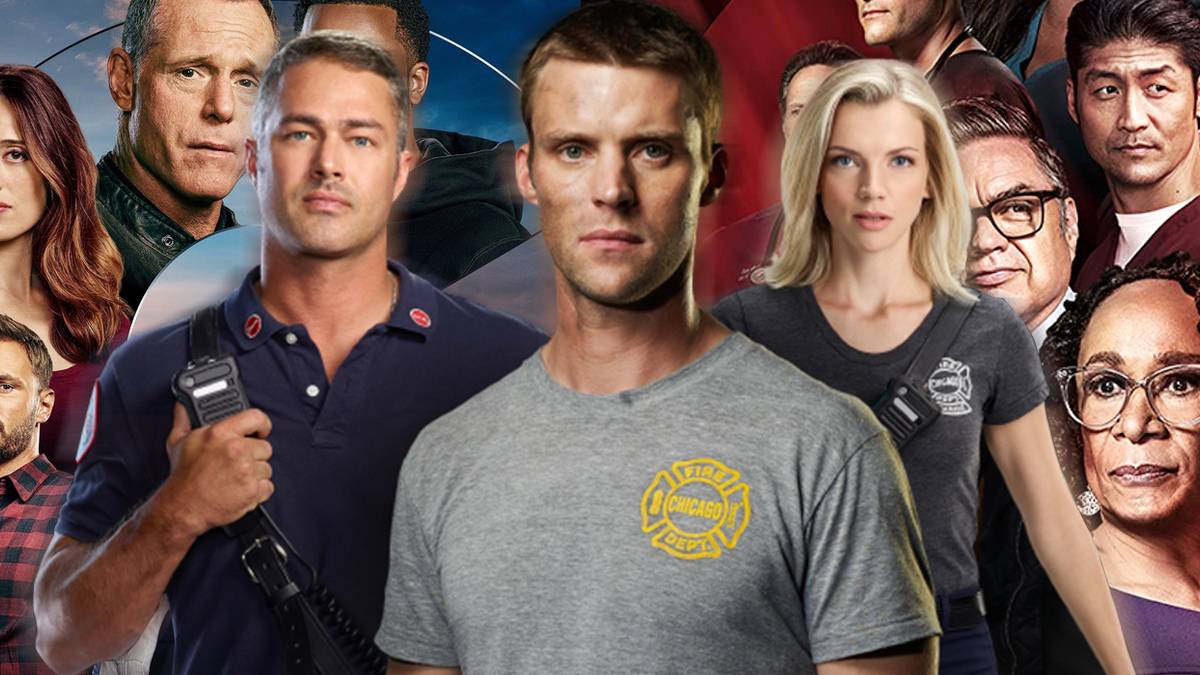
Burning Embers and Shattered Shields: Characters on the Precipice in Chicago Fire, Med & P.D.
The sprawling “One Chicago” universe, with its interconnected dramas of Chicago Fire, Med, and P.D., thrives on its ability to depict the raw, unrelenting pressures faced by its first responders. Each show pulls back the curtain on individuals confronting not only life-or-death situations in their professional lives, but also the deeply personal struggles that threaten to unravel them. While heroism is a common thread, it’s the constant threat of falling from grace, of teetering on the edge of oblivion, that makes these characters so compelling. In the current landscape, several figures across these three shows find themselves on the brink, grappling with trauma, addiction, and moral compromises that threaten to shatter their well-being and professional standing.
Within the fiery crucible of Firehouse 51, Stella Kidd embodies a character grappling with the aftershocks of past trauma and the immense responsibility of leadership. While she’s a highly skilled firefighter and a dedicated lieutenant, the ghosts of her past – her absent mother, her struggles with sobriety, and the lingering effects of past relationships – continue to haunt her. Her unwavering commitment to Girls on Fire, a program that mentors young women, is admirable, yet it also signifies a desire to heal her own wounds vicariously. The pressure to be a role model, coupled with the ever-present danger of her profession, puts her in a precarious position. One misstep, one moment of weakness, could send her spiraling back down a path she fought so hard to escape. The recent near-death experience of her husband, Severide, only amplifies this fragility, leaving her on the edge of a breakdown, desperate to maintain control in a world that often feels chaotic.
Over at Chicago Med, Dr. Crockett Marcel stands as a prime example of a character grappling with the moral ambiguities of saving lives. While undeniably talented, Crockett’s swagger and impulsive nature often lead him to make questionable decisions, particularly when dealing with emotionally charged cases. He’s burdened by the memory of his brother, who died from a terminal illness, a trauma that colors his approach to patients with similar diagnoses. He often pushes the boundaries, taking risks that border on reckless in his attempts to cheat death. This recklessness stems from a deep-seated fear of failure and a desire to prove himself worthy, potentially leading to ethical breaches and burnout. The constant exposure to suffering, coupled with his own internal demons, leaves him vulnerable, teetering on the edge of ethical compromise and emotional exhaustion. His constant need for external validation only exacerbates his precarious position, making him susceptible to making decisions that prioritize recognition over ethical considerations.
Perhaps the most consistently depicted “edge-walker” resides within the morally ambiguous world of Chicago P.D. Detective Hailey Upton, while a dedicated and intelligent officer, struggles to reconcile her unwavering commitment to justice with the often-blurred lines of morality within the Intelligence Unit. Her marriage to Halstead, now seemingly irrevocably fractured, has left her emotionally raw and vulnerable. This vulnerability, coupled with the intense pressure of her job, fuels her tendency to overstep, to bend the rules in pursuit of a conviction. Her past experiences with trauma, particularly her troubled childhood and the brutal realities of law enforcement, have hardened her, making her hesitant to trust and quick to resort to violence. This volatility makes her a powerful asset to the team, but it also puts her on the precipice of crossing the line, potentially leading to professional consequences and a deep moral crisis. Her relentless pursuit of justice, fueled by her internal pain, could ultimately lead to her downfall, pushing her into a darkness from which she may not return.
In conclusion, the appeal of Chicago Fire, Med, and P.D. lies not just in the adrenaline-pumping action, but also in the nuanced portrayals of characters struggling with the weight of their responsibilities and the burden of their pasts. Stella Kidd, Crockett Marcel, and Hailey Upton, each in their own way, represent the precariousness of life on the front lines. They are individuals teetering on the edge, constantly battling internal and external forces that threaten to consume them. Their struggles remind us that even the most heroic individuals are vulnerable, and that the true test of character lies not in avoiding the edge, but in finding the strength to pull back from the brink. The ongoing narratives of these characters promise a continued exploration of the human cost of heroism, ensuring that the audience remains captivated by their journey, hopeful that they can find redemption and ultimately step back from the precipice.
